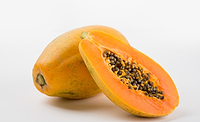Lessons from Canada’s Largest-ever Meat Recall

The largest meat recall in Canadian history began in September 2012 with the shutdown of XL Foods’ Lakeside plant just outside Brooks, Alberta.
This plant was the second-largest in Canada, representing one-third of the national beef processing capacity, and was shut down by order of the Canadian Food Inspection Agency (CFIA) after Escherichia coli O157:H7 was found in meat originating from the plant.
The fallout from the operational failures at the plant ultimately resulted in the sale of the Brooks facility to JBS Canada.
Culture to Blame?
Early reports following the shutdown suggested that the corporate culture within the plant did not prioritize food safety.
Early CFIA findings indicated that while HACCP documents were in place, “…was not being fully implemented or regularly updated.” More specifically, there was no list of steps to follow when product was positive for E. coli, inconsistent trend analysis on positive findings, no process to include test results from clients, insufficient record keeping, and deficiencies in sampling techniques and procedures
Union officials representing the line workers at the plant also suggested that getting product out the door trumped food safety concerns. This should not excuse the frontline employees from their responsibility in the matter, but it is the responsibility of the corporate leaders and managers to establish the culture, the expectations, the policies, and the training that serve to guide decision-making for every employee.
Keith Warriner, professor and director of the Food Safety and Quality Assurance Program at the University of Guelph, had this to say in the aftermath of the recall:
“The food safety culture is where you give empowerment to workers, responsibility to workers, and also, the management must respect the rules and protocols. Because one thing that was evident in this event was they had all the written protocols in place, they had all this nice food safety system called HACCP, which takes years to develop at a high cost, but no one was actually practicing it.”
“Everyone says, ‘Get more regulations, get more inspectors’, well that’s not the key to food safety. The best food safety is where you have self-ownership of food safety, so you do things that are right.”
Culture to Blame? Seems So.
In the wake of the event, the government commissioned an independent review to uncover the events that led to the distribution of contaminated products.
The results of this review were released in May 2013, and the results were very critical of both plant personnel and CFIA staff. And the ultimate outcome?
From Section 9 of the Report – Closing Thoughts: (emphasis mine)
The XL Foods Inc. recall was exacerbated by a number of key factors. The company’s recordkeeping was wanting. It was unprepared to deliver important product and distribution information promptly to inspection authorities. Because the recall involved the country’s second largest beef processor, producers had few alternatives for their cattle once the plant closed.
Coordination of communications with the public left consumers confused and worried. Over a period of several weeks, they heard that more and more product was not to be consumed. It is no surprise that polls suggest Canadians worry most about E. coli O157:H7 contamination in their food, and believe that it is on the rise.
And it was all preventable.
Food safety is comprised of two essential elements: a system, and the people that implement it.
As we have already noted, Canada’s food safety system is a complex one; given the several jurisdictions that govern us, that system necessarily involves many players. Despite some challenges, however, it works. It is recognized globally as a sound approach to food safety. That said, continuous improvement is vital if we are to remain ahead of the food safety curve. The Panel has identified recommendations that we believe contribute to that effort.\
The greater element—and the greater challenge—of food safety is people. Systems are of no use without the skill, vigilance and commitment of individuals. The lion’s share of our recommendations focus on this element.
We have already noted that food safety is a philosophy. It must be a culture adopted and practised across all levels of an organization—from the company president to the beef trimmer on the night shift; from the veterinarian in charge to the meat inspector. These individuals play a key and important role in the health of consumers. They must take that responsibility seriously.
Geoff Schaadt, M.Sc., M.B.A., is a consultant with Delta Partners.
>Looking for a reprint of this article?
From high-res PDFs to custom plaques, order your copy today!







